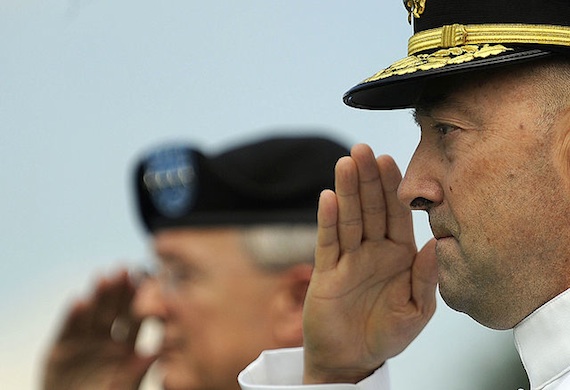
I recently attended a talk in Boston given by Adm. James Stavridis, the dean of the Fletcher School — Tufts University’s graduate school of Law and Diplomacy — his alma mater (and mine). The subject was global security, and during the course of his very sobering talk, he gave a fascinating sidebar on the importance of reading novels — of stories. Among the books he mentioned were The Orphan Master’s Son, The Circle, Matterhorn, A Constellation of Vital Phenomena, and Station Eleven.
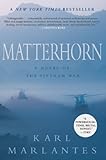
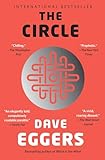
 Stavridis has had an illustrious, globe-spanning career in the U.S. Military including three years leading U.S. Southern Command and four years (2009-2013) as the Supreme Allied Commander of NATO. When we met before dinner, we quickly launched into a rapid-fire chat about books we had recently read. It seemed to me, he had read everything. Through military ventures in Haiti, Bosnia, the Persian Gulf, and Libya (among other operations Stavridis commanded was the 2011 NATO intervention that led to the downfall of the Muammar Gaddafi regime) on aircraft carriers and battleships, while serving at the Pentagon and on Navy destroyers, one thing has been consistent: his love of reading, and his need for books to help make sense of this increasingly complicated world. His exuberance for the written word inspired me to return to Boston and finish our conversation.
Stavridis has had an illustrious, globe-spanning career in the U.S. Military including three years leading U.S. Southern Command and four years (2009-2013) as the Supreme Allied Commander of NATO. When we met before dinner, we quickly launched into a rapid-fire chat about books we had recently read. It seemed to me, he had read everything. Through military ventures in Haiti, Bosnia, the Persian Gulf, and Libya (among other operations Stavridis commanded was the 2011 NATO intervention that led to the downfall of the Muammar Gaddafi regime) on aircraft carriers and battleships, while serving at the Pentagon and on Navy destroyers, one thing has been consistent: his love of reading, and his need for books to help make sense of this increasingly complicated world. His exuberance for the written word inspired me to return to Boston and finish our conversation.
 Marcia DeSanctis: When I met you last month, you told me you had just put down My Life in France and it had you in tears. That surprised me.
Marcia DeSanctis: When I met you last month, you told me you had just put down My Life in France and it had you in tears. That surprised me.
James Stavridis: Why?
MD: I suppose because you’re a four-star admiral.
JS: Well, even four-star admirals read quirky books and this is an incredibly quirky, wonderful book about discovering yourself and discovering your life. Julia Child comes to France, kind of searched around for what to do with her life, essentially. Newly married and falls in love not only with her husband but with France and with its cuisine and with its culture. The voice in the book is so authentic and so beautiful, so wonderfully rendered. And the part that really had me in tears — because everything I said to you is actually quite joyous and upbeat — is the end of the book where she recognizes that, as she hits her 80s, she cannot continue to go independently to the small home in the south of France where she had centered so much of her life. And you can feel her untethering from something that has meant everything to her.
MD: You also mentioned you like books about chefs.
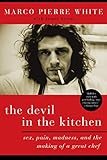
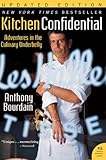 JS: Oh, I love books about chefs. Who doesn’t? I love, particularly, chef memoirs. Anthony Bourdain is just fantastic, Kitchen Confidential. Or The Devil in the Kitchen (Marco Pierre White) is just fabulous.
JS: Oh, I love books about chefs. Who doesn’t? I love, particularly, chef memoirs. Anthony Bourdain is just fantastic, Kitchen Confidential. Or The Devil in the Kitchen (Marco Pierre White) is just fabulous.
MD: So the reason I asked to interview you was because I recently attended a lecture you gave in Boston, which was a frank assessment of the crises that are facing our planet now and the people on it. You covered it all — climate change, ISIS, epidemics, poverty, inequality, cyber risks. And then you posted a slide about novels. Can you tell me why you inserted a slide about novels and why you chose the ones that you did?
JS: Well, first of all, because reading is integral to my life. And I think, in the end, we solve global problems not by launching missiles, it’s by launching ideas. So as a tool for understanding the world and for understanding how you can change the world, I find fiction incredibly important. One that I put up pretty frequently is The Orphan Master’s Son by Adam Johnson, which is a superb book about North Korea. And North Korea’s an almost impenetrable country. But through a decade of meticulous research and endless interviews and then, an understanding of the human sensibility in an extraordinarily dystopian world, Adam Johnson gives us a portrait of life in North Korea. It’s not a burlesque, it’s not satire. It is, in every sense, life in a world where everything is a half a beat off the music. It’s a gorgeous novel.
I think a second book I had there was The Circle by David Eggers, which is a world in which all of the social networks kind of merge into one. So picture Google, LinkedIn, Facebook, Twitter, everything merged in one huge social network where the motto is “Privacy is Theft.” And the idea is that by complete transparency, we can transform the world. Overlaid on it is a coming of age story of a young woman who has her first job at the Circle. In the largest sense, by one of our most creative contemporary writers, David Eggers, it is a story about what we hold to ourselves, what is privacy, and what transparency can provide but take away from each of us. I think that is an enormous debate that spans the distance from Edward Snowden to Julian Assange to Chelsea Manning. It’s a profoundly important novel that helps us deal with this collision between privacy and transparency.
MD: And you think a novel has the power to help deal with it?
JS: I do, I do absolutely. In the most prosaic way, novels are stories. So recognizing there are differences in how people learn and what people want to read, for me — and I think for the vast majority of people — stories are the best way to learn.
MD: You also discussed Emily St. John Mandel’s Station Eleven.
JS: Dystopian literature is very interesting. Most of it is unspeakably bleak. But some dystopian literature really is about how you come back; it’s about resilience, so I love that novel.
Station Eleven is about the world after a brutal pandemic that kills 99.9 percent of the population. And it’s a novel about choices that people make in crisis. And so the protagonist chooses — and I love this part — to become part of a wandering troupe of Shakespearean actors with a kind of ragtag orchestra attached to it, that wanders around this devastated countryside putting on plays and concerts. And think about that for a minute and what that implies about the resilience of the human spirit, about the importance of art, the importance of music, the importance of drama — all those things are powerful in this. It’s such a wonderful construct. And, at the end of the novel, they got to an airport where another band of outcasts have managed to find a way. And in the distance, they see a light on a hilltop — not a bonfire but an electric light. It’s a symbol that we can recover, we can come back. It’s a very hopeful novel.
I was just testifying with Bill Gates on the Hill yesterday, not to namedrop, but we were talking about global health and pandemics and the importance of speed and alacrity in response. Part of what can help us prepare for a pandemic is imagining how horrible the outcome would be. Thus, a book like Station Eleven helps us do that.
MD: Interesting. So in your talk, you confirmed what most of us know, that in a world gone mad or potentially gone mad, novels are these kinds of islands of sanity and escape, even ones that are difficult to read like A Constellation of Vital Phenomena.
JS: Yeah, oh, that’s an absolutely wonderful book.
MD: I agree. So explain to me, why reading matters and the importance of books, particularly fiction, in your life.
JS: Well, first of all, I developed a reading habit very early. My parents moved to Greece when I was eight years old. In those days, in the 1960s, Greece effectively didn’t have television. Certainly no English language television. So my mom would take me down to the embassy library on the weekends and I’d pick out books. And then, it became a lifelong habit and I’ve always had a book in my hand. I read constantly. I read probably 80 percent fiction, 20 percent nonfiction. And I have found through reading fiction, I understand the human condition better.
You said a moment ago that a novel is a sanctuary in the middle of this violent world. Let’s remember that occasionally, novels are also moments of violence in an otherwise very peaceful life. It can be the opposite. And so if you can think of a novel as a kind of simulator where you imagine what you would do in a stressful, dangerous situation, it becomes, I think, a very helpful learning tool about ourselves.
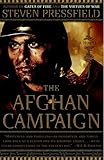 And, helpful to understand other places and cultures. I’ve recommended on occasion a novel about Afghanistan called The Afghan Campaign by Steven Pressfield, which is not about the current NATO campaign, it’s not about the Russian campaign, it’s not about the British campaign. It’s about the first campaign, which is that of Alexander the Great and the Greeks’ attempt to conquer Afghanistan, which turned out roughly the same as all the other ones. And the reason is because you can drop a line — a plumb line — from 2,500 years ago to the present day in terms of the toughness of Pashtuns and their culture. And so to read a novel like that, even set in an ancient time, could help you understand Afghanistan and its place in history.
And, helpful to understand other places and cultures. I’ve recommended on occasion a novel about Afghanistan called The Afghan Campaign by Steven Pressfield, which is not about the current NATO campaign, it’s not about the Russian campaign, it’s not about the British campaign. It’s about the first campaign, which is that of Alexander the Great and the Greeks’ attempt to conquer Afghanistan, which turned out roughly the same as all the other ones. And the reason is because you can drop a line — a plumb line — from 2,500 years ago to the present day in terms of the toughness of Pashtuns and their culture. And so to read a novel like that, even set in an ancient time, could help you understand Afghanistan and its place in history.
 Lastly, I think novels are a way that we can explore the unimaginable. So here, I’m thinking of science fiction and fantasy even, which I think are not only entertaining but powerful in terms of how they open our minds. I’ll give you an example. Ender’s Game, which is a classic science fiction novel about a cyber force defending its world. It makes me think, “Should we have a cyber force today?” Today we have an Army, a Navy, an Air Force, and a Marine Corps. We don’t have a cyber force. But when I read a science fiction novel about the future, I think, “Boy, we’re going to need one pretty quick.” I have a lot of pragmatic, real world reasons for that, as well. But fiction can reinforce that and open up what’s often unimaginable to us.
Lastly, I think novels are a way that we can explore the unimaginable. So here, I’m thinking of science fiction and fantasy even, which I think are not only entertaining but powerful in terms of how they open our minds. I’ll give you an example. Ender’s Game, which is a classic science fiction novel about a cyber force defending its world. It makes me think, “Should we have a cyber force today?” Today we have an Army, a Navy, an Air Force, and a Marine Corps. We don’t have a cyber force. But when I read a science fiction novel about the future, I think, “Boy, we’re going to need one pretty quick.” I have a lot of pragmatic, real world reasons for that, as well. But fiction can reinforce that and open up what’s often unimaginable to us.
MD: Do you believe that there is a single most important novel about conflict — or let’s say two, an old one and a new one, a classic and a contemporary — that really encapsulates the bad and the ugly about war?
JS: Yeah, I’ll give you a modern one, Matterhorn, which is by Karl Marlantes. It’s about Vietnam and combat at the micro level. It’s about a young Princeton graduate who becomes a second lieutenant in the Marine Corps and his first 60 days in combat. It won the National Book Award. It’s magnificent.

 I’ll give you one from the middle period. Red Badge of Courage by Stephen Crane, about the psychology of war, is quite terrific. All Quiet on the Western Front, a World War I novel by Erich Maria Remarque, is incredible.
I’ll give you one from the middle period. Red Badge of Courage by Stephen Crane, about the psychology of war, is quite terrific. All Quiet on the Western Front, a World War I novel by Erich Maria Remarque, is incredible.
For contemporary historical fiction written about a battle 2,500 years ago, I’d recommend Gates of Fire by Steven Pressfield, which is about the Battle of Thermopylae. And there’s a powerful line in that book, which I think is very true, which is that the opposite of fear is not courage. The opposite of fear on a battlefield is love. Because warriors in combat fight for the love of those with whom they are in combat. That’s a powerful idea. Actually, I have to give you one other.
MD: Great.
JS: Because I’m an Admiral, I get to give you a nautical book.
MD: That was one of my questions, actually.
JS: So the best seagoing books about combat, in my opinion, are by a writer called Patrick O’Brian. He wrote a series of believe it or not, 20 novels and they’re all set from about 1800 through 1815. They follow the life and times of a British sea captain, Jack Aubrey. They are terrific. Picture Jane Austen going to sea and writing about maritime combat. They are that good. I think they may be the best writing of the late-20th century. The reason they’re not more widely celebrated is because they’re perceived as maritime warfare genre. But these are big, chewy, fascinating books about life, relationships. About a third of them are set ashore in early 1800s Great Britain, two-thirds set at sea. The combat scenes are incredibly realistic.
MD: Do you have a favorite book about the sea?
 JS: I think it’s hard to argue with Moby-Dick. It’s the greatest sea novel of all.
JS: I think it’s hard to argue with Moby-Dick. It’s the greatest sea novel of all.
MD: Do you have an opinion about 9/11 books? I’ll name a few — The Emperor’s Children by Claire Messud; The Submission by Amy Waldman; Homeboy by HM Naqvi; Falling Man by Don DeLillo.
JS: I like Don DeLillo, I liked Falling Man. I don’t lean to 9/11 books as a general proposition. I had a near death experience at 9/11. I was in the Pentagon and my office was right on the side of the building that was hit by the airplane.
MD: You spent your career up until now with the military. Do you read books that are critical of U.S. policy and the wars themselves?
JS: Of course.
MD: There are many.
JS: Oh, sure.
MD: Shattering depictions of the war, soldiers’ reality, and the aftermath.
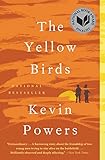
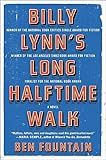
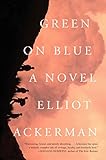 JS: Oh, gosh, yes. Both fiction and nonfiction. I’ll give you a couple that I loved. I like Green on Blue by Elliot Ackerman, just came out. I like Billy Lynn’s Long Halftime Walk by Ben Fountain. I like Yellow Birds (Kevin Powers), I like The Book of Jonas (Stephen Dau).
JS: Oh, gosh, yes. Both fiction and nonfiction. I’ll give you a couple that I loved. I like Green on Blue by Elliot Ackerman, just came out. I like Billy Lynn’s Long Halftime Walk by Ben Fountain. I like Yellow Birds (Kevin Powers), I like The Book of Jonas (Stephen Dau).
In terms of nonfiction, critical, I think is Fiasco by Tom Ricks — it’s harsh, but, in many ways, accurate. It’s about Iraq. Most of the really harsh books are more about Iraq, less about Afghanistan, I think because Afghanistan’s probably going to come out okay.
MD: Yes. What about Dexter Filkins?
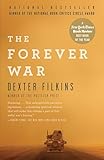 JS: I love Dexter Filkins. The Forever War I think is a masterpiece. And you know, I signed 2,700 letters of condolence to young men and women who died under my command. And when I’m in Washington, I often go to Section 60 of Arlington National Cemetery and visit with them and that will be with me forever. So I read those books partly to honor them, partly because it’s a big part of my life, partly because I feel it’s my responsibility.
JS: I love Dexter Filkins. The Forever War I think is a masterpiece. And you know, I signed 2,700 letters of condolence to young men and women who died under my command. And when I’m in Washington, I often go to Section 60 of Arlington National Cemetery and visit with them and that will be with me forever. So I read those books partly to honor them, partly because it’s a big part of my life, partly because I feel it’s my responsibility.
MD: How do you have time to do all this reading?
JS: I stay up late at night, do it on airplanes, use technology to make it easy.
MD: I was going to ask — Kindle or hard copy?
JS: Both.
MD: Books on tape? Do you do Audible?
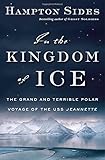 JS: No, I don’t. What I do now, as opposed to going out and buying a stack of books, is I’ll read on the Kindle and then say okay, that’s a terrific book, and buy it. Like I just read Into the Kingdom of Ice by Hampton Sides, which is a book about a polar expedition and it’s fantastic. It’s nonfiction but it reads like a novel. It’s kind of in Eric Larson style if you know his work.
JS: No, I don’t. What I do now, as opposed to going out and buying a stack of books, is I’ll read on the Kindle and then say okay, that’s a terrific book, and buy it. Like I just read Into the Kingdom of Ice by Hampton Sides, which is a book about a polar expedition and it’s fantastic. It’s nonfiction but it reads like a novel. It’s kind of in Eric Larson style if you know his work.
MD: I do.
JS: I’m reading currently his new book, Dead Wake, about the sinking of the Lusitania. It’s just fantastic. Oh, gosh. Fabulous, fabulous writer. So if I think a book will stand up to it, I’ll own a copy of it. I own about 5,000 books and I’m trying to not own 10,000 books.
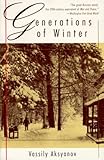
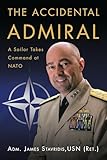 MD: You have a long reading list at the end of your autobiography The Accidental Admiral. One of the books is Generation of Winter by Vassily Aksyonov.
MD: You have a long reading list at the end of your autobiography The Accidental Admiral. One of the books is Generation of Winter by Vassily Aksyonov.
JS: Yeah, it’s a beautiful novel.
MD: I wrote my senior thesis on him, by the way.
JS: Stop it.
MD: Yes, about Aksyonov.
JS: Is he still alive, by the way?
MD: No, he died a few years ago. He’s not one of the better known Soviet-era writers. Why do you think this is an important book?
JS: Because it raises issues of ethics in command. It’s also, I think, a portrait of a really interesting period in Russian society that transitioned from the World War II generation and how they were effectively betrayed. And I think it’s also a novel about civilian control of the military. I just think it’s a very clever, haunting novel and the characters are beautifully developed.
Is it as good as [Fyodor] Dostoevsky or [Leo] Tolstoy or [Aleksandr] Solzhenitsyn, [Nikolai] Gogol? No. But…
MD: You have a lot of Russians on that list.
JS: Oh, yeah. I love Russian literature.
MD: If you met Vladimir Putin, what would you suggest he read?
JS: I’d start — and I’m sure he’s read a lot of the — well, actually, no, he was a KGB Colonel, so maybe not. He’s certainly not from the intelligentsia, he’s from the thugocracy.
MD: Thugocracy.
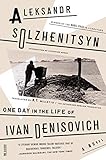

 JS: Thugocracy, absolutely. I think I’d start him on Dead Souls by Gogol because it’s such an absurdist novel and it’s about trying to grasp power and watching it slip through your fingers. I’d probably force him to read The Brothers Karamazov and focus on the Grand Inquisitor scene. But you know what he’d say back to me? He’d say, “Okay, I’ll read those, but, Stavridis, if you want to understand how tough Russians are and why your sanctions aren’t going to work, read One Day in the Life of Ivan Denisovich by Solzhenitsyn. And so I think we could have a lively conversation about the motifs of Russian literature.
JS: Thugocracy, absolutely. I think I’d start him on Dead Souls by Gogol because it’s such an absurdist novel and it’s about trying to grasp power and watching it slip through your fingers. I’d probably force him to read The Brothers Karamazov and focus on the Grand Inquisitor scene. But you know what he’d say back to me? He’d say, “Okay, I’ll read those, but, Stavridis, if you want to understand how tough Russians are and why your sanctions aren’t going to work, read One Day in the Life of Ivan Denisovich by Solzhenitsyn. And so I think we could have a lively conversation about the motifs of Russian literature.
MD: Fair enough. You also included one of my favorites, The Good Soldier Svejk. What does that book teach you about command? Not much, right?
JS: No, not much at all. Another terrific novel — I forget if it was on my list, I think it was, is called One Soldier’s War by Arkady Babchenko. You should stop everything you’re doing and read this book.
MD: Really? Why?
JS: If you like Russia and you’re interested in this topic, it’s about a Russian conscript fighting in Chechnya in the 1980s. It’s an inside look at the Russian military and its extraordinary dysfunctionality and the cruelty of its counter-insurgency technique, which led, obviously, to the complete disasters there. I mean, it makes the U.S. performance in Vietnam look like an Olympic gold medal by comparison. It’s a powerful, powerful book.
MD: I noticed you had Anne Applebaum’s book on the list, which I thought was really a masterpiece. I mean…
 JS: Gulag.
JS: Gulag.
MD: Gulag: A History, yes.
JS: Yeah, it’s a brilliant book.
MD: Of all the global concerns now — and there are many — what do you think is the most fertile ground for future literature?
JS: Of what’s happening now, I think it’s the Arab Spring, which the term itself has become this sort of grand irony. But I think what’s happening in the Arab world today is a lot like the Reformation, which ripped apart the Christian faith, created the wars between Protestants and Catholics, destroyed a third of the population of Europe. It led to, among other things, William Shakespeare’s plays, Martin Luther’s writing. So I think the big muscle movement is in the Arab world and I think those novels are being written. They’ll have to be translated. They’ll start to come out, though. But the searing quality of what’s happening in that part of the world, I think, will unfortunately lend itself to a dark vein of fiction going forward. I think another place is India, and I love contemporary Indian fiction.
MD: Name a few that you love.

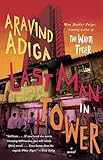 JS: The Last Man in Tower by Aravind Adiga, and even better is White Tiger. I like Salman Rushdie. He’s a little dense and somewhat impenetrable. I like — I forget his name. Sea of Poppies is his best book. It’s fantastic. It’s historical fiction set, oh, probably 200 years ago. Hang on, let’s see. [Looks it up on iPad] Yeah, Amitav Ghosh. Sea of Poppies. So there’s a few. But I think Indian literature will lend itself to big, big novels coming out.
JS: The Last Man in Tower by Aravind Adiga, and even better is White Tiger. I like Salman Rushdie. He’s a little dense and somewhat impenetrable. I like — I forget his name. Sea of Poppies is his best book. It’s fantastic. It’s historical fiction set, oh, probably 200 years ago. Hang on, let’s see. [Looks it up on iPad] Yeah, Amitav Ghosh. Sea of Poppies. So there’s a few. But I think Indian literature will lend itself to big, big novels coming out.
The United States will continue to produce, I think, terrific novels from young novelists and from old novelists. Can there be a better writer alive today than Cormac McCarthy, who’s 80-plus years old and keeps writing these masterpieces one after the other? It’s unbelievable.
MD: It is.
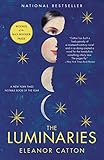 JS: And we have brilliant, brilliant young writers, certainly in the English speaking world — this novel, The Luminaries (Eleanor Catton) She’s a New Zealander, youngest person to ever win the Man-Booker Prize. And the book is just — oh, my God, it’s magnificent. It’s just unstoppable.
JS: And we have brilliant, brilliant young writers, certainly in the English speaking world — this novel, The Luminaries (Eleanor Catton) She’s a New Zealander, youngest person to ever win the Man-Booker Prize. And the book is just — oh, my God, it’s magnificent. It’s just unstoppable.
MD: Tell me what you like about it.
JS: I love it because it’s so complicated and the fit and finish of it are just extraordinary as a technical accomplishment. Secondly, it is about a fascinating period in the Gold Rush in New Zealand in the 1850s. And thirdly, the characters in it are so both crisply drawn but feel like they’re just from contemporary life. They feel like they have walked in from people you know. It’s really good. I’ll tell you, it’s like Cold Mountain, which I know you’ve read, by Charles Frazier. It’s that good.
MD: That’s a good war book.
JS: It is a good war book a book that shows both sides of it, with the coming home piece, too.
MD: I wanted to get some final thoughts about some of the books you highlighted in your talk in Boston (Matterhorn, The Orphan Master’s Son, Station Eleven, The Circle). Is this the literature of hope or is it the literature of despair about the world we live in now?
JS: What we hope from our writers is that they give us both. Despair’s part of the human condition as is joy and hope and love. And there are wonderful novels on both sides. And as I look back at literature over the ages, I think that’s largely been the case. I think you go back to Voltaire writing in the midst of the French Revolution, the world’s collapsing. I mean, the world is on fire. It’s really falling apart. We like to act like the world’s falling apart. It’s actually not. It’s actually going to hold together and it’s getting better. And that’s hard to see in the thicket of the day-to-day anguish over — justifiably — over Syria and the Ukraine and people flying airplanes into the side of mountains. But if you really rise your head above it and you look at violence in the world, levels of war, we’re better than we’ve ever been. Fewer people are killed in war, fewer people die of pestilence. We’re getting better by really any conceivable metric.
 So back to Voltaire. He’s writing in a world that really is on fire. What’s the novel he writes? Candide. You know? “I must tend my garden.” It’s pretty terrific. And that’s a book I read once every year or two. And you know, there are those who say, “Oh, it was all a big satire and you know, he’s actually debunking the theory of optimism.” I don’t think so. I think Candide is a book of optimism and a book of hope from a guy who was very cynical. But I think in his heart, he felt like the outcome of this revolution and everything that was falling apart would eventually be a better world, and I think we’re getting there.
So back to Voltaire. He’s writing in a world that really is on fire. What’s the novel he writes? Candide. You know? “I must tend my garden.” It’s pretty terrific. And that’s a book I read once every year or two. And you know, there are those who say, “Oh, it was all a big satire and you know, he’s actually debunking the theory of optimism.” I don’t think so. I think Candide is a book of optimism and a book of hope from a guy who was very cynical. But I think in his heart, he felt like the outcome of this revolution and everything that was falling apart would eventually be a better world, and I think we’re getting there.
MD: Anything you’re looking forward to?
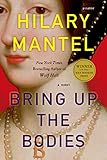
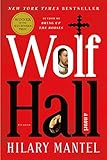 JS: Well, I wake up every morning hoping that this will be the day that Hilary Mantel’s third volume comes out after Wolf Hall and Bring up the Bodies. I love Hilary Mantel because she’s a brilliant writer. But what I love about the trilogy is the reversal of character in which Thomas Cromwell, always portrayed as the villain, is suddenly the hero. And Sir Thomas More, the saintly Thomas More, is the insufferable prig. And I find it a to be a powerful piece of fiction because it reimagines the world. Because no one knows. No one knows. I mean, that was 400 years ago and no one knows.
JS: Well, I wake up every morning hoping that this will be the day that Hilary Mantel’s third volume comes out after Wolf Hall and Bring up the Bodies. I love Hilary Mantel because she’s a brilliant writer. But what I love about the trilogy is the reversal of character in which Thomas Cromwell, always portrayed as the villain, is suddenly the hero. And Sir Thomas More, the saintly Thomas More, is the insufferable prig. And I find it a to be a powerful piece of fiction because it reimagines the world. Because no one knows. No one knows. I mean, that was 400 years ago and no one knows.
MD: Last question. Do you have a favorite movie about the Navy?
JS: The Caine Mutiny Court-Martial by a country mile.
Image Credit: Wikimedia Commons.








